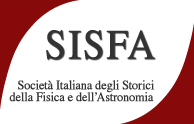Speaker
Description
A number of arguments have been put forward over the past decades to support the use of history of physics into the teaching of physics among students and pre-service teachers (Matthews 2014,2015). For example, it has been written that history of physics makes physics more attractive to many students, can enhance reasoning and critical thinking skills and can improve teacher education. Also, history of physics can assist teachers appreciate the learning difficulties of students and may offer substantial benefits in enabling people to develop scientific literacy and an understanding and appreciation both in science and about science. Finally, history of physics and the wider domain of the history of material culture, as represented by the collections of old scientific instruments in schools and universities, may prove to be useful both at the cognitive and the meta-cognitive level. Notwithstanding this awareness, this approach is not implemented in many ministries of education policies (only scant references are made in the Italian National Guidelines) and remains largely un-adopted by many physics teachers.
In this speech, we will address the main challenges posed by the use of history of physics into the physics education through some intriguing historiographical case-studies (as the so-called “Rutherford’s experiment” on alpha particles scattering) and through a survey of physics teachers as to the feasibility of the historical method. We will also address the opportunities of such an approach for both students and teachers, and, finally, the most promising research directions in this domain through an analysis of the various ways in which the interplay between history of physics and physics education can be conveyed.
Matthews M R (ed.) (2014). International Handbook of Research in History, Philosophy and Science Teaching (Dordrecht: Springer)
Matthews M R (2015). Science Teaching: The Contribution of History and Philosophy of Science 2nd edn (New York: Routledge)

